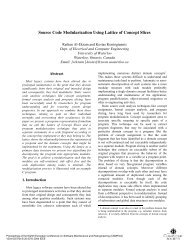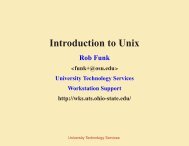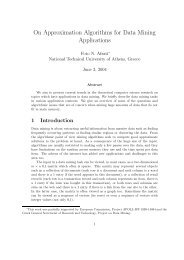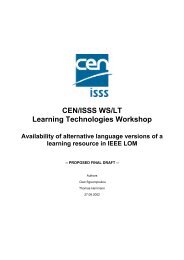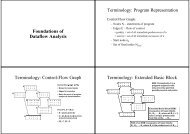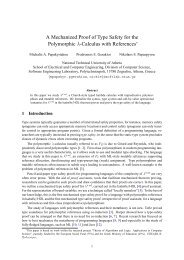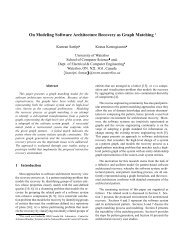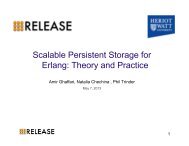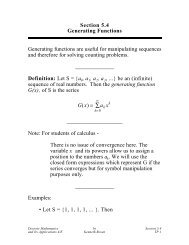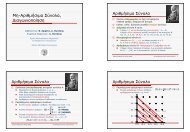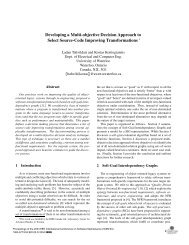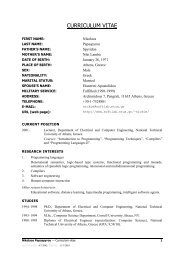Manual
Manual
Manual
You also want an ePaper? Increase the reach of your titles
YUMPU automatically turns print PDFs into web optimized ePapers that Google loves.
Chapter 5: The Bison Parser Algorithm 77<br />
{ printf ("empty sequence\n"); }<br />
| sequence word<br />
{ printf ("added word %s\n", $2); }<br />
;<br />
Here is another common error that yields a reduce/reduce conflict:<br />
sequence: /* empty */<br />
| sequence words<br />
| sequence redirects<br />
;<br />
words: /* empty */<br />
| words word<br />
;<br />
redirects:/* empty */<br />
| redirects redirect<br />
;<br />
The intention here is to define a sequence which can contain either word or redirect<br />
groupings. The individual definitions of sequence, words and redirects are error-free,<br />
but the three together make a subtle ambiguity: even an empty input can be parsed in<br />
infinitely many ways!<br />
Consider: nothing-at-all could be a words. Or it could be two words in a row, or three,<br />
or any number. It could equally well be a redirects, or two, or any number. Or it could<br />
be a words followed by three redirects and another words. And so on.<br />
Here are two ways to correct these rules. First, to make it a single level of sequence:<br />
sequence: /* empty */<br />
| sequence word<br />
| sequence redirect<br />
;<br />
Second, to prevent either a words or a redirects from being empty:<br />
sequence: /* empty */<br />
| sequence words<br />
| sequence redirects<br />
;<br />
words:<br />
word<br />
| words word<br />
;<br />
redirects:redirect<br />
| redirects redirect<br />
;<br />
5.7 Mysterious Reduce/Reduce Conflicts<br />
Sometimes reduce/reduce conflicts can occur that don’t look warranted. Here is an example:



